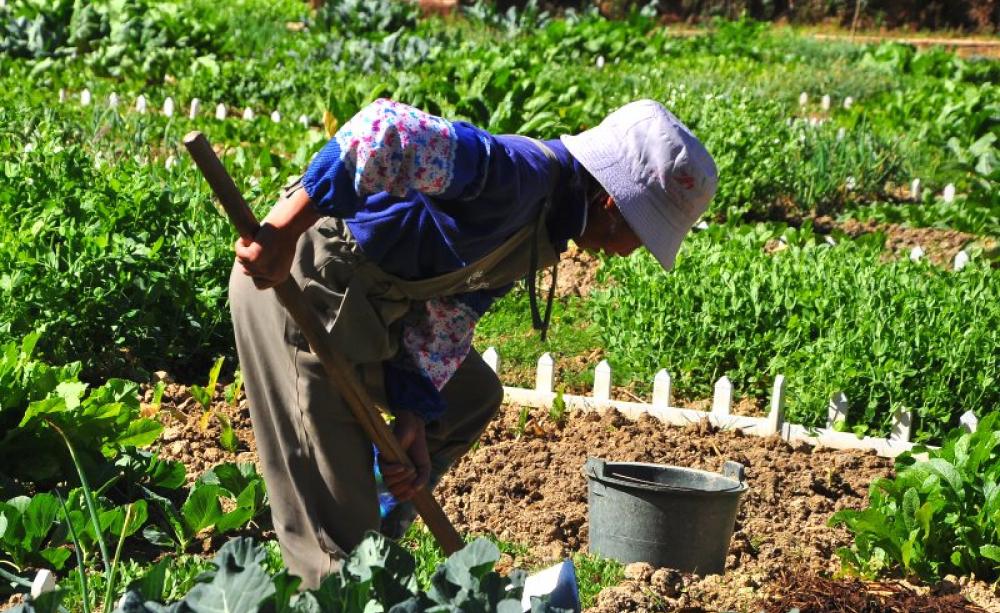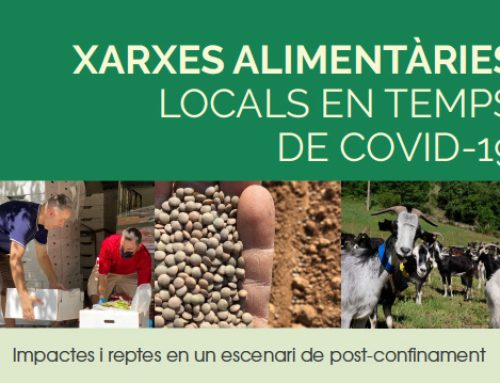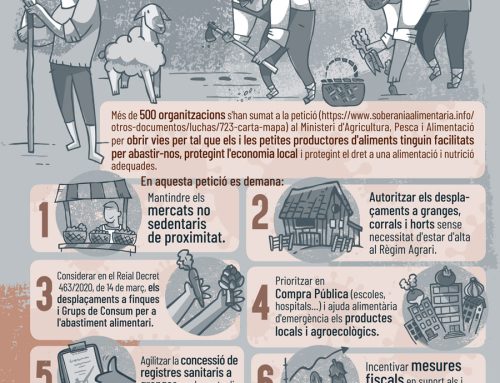La FAO acaba de publicar una entrada sobre el interés de las Universidades Chinas en la Agroecología. Os pegamos aquí el texto de la noticia, que podéis ver aquí: http://www.fao.org/agroecology/slideshow/news-article/en/c/1194251/
A workshop on “Scaling out Agroecology Practices in China” was held at Nanjing University in China on April 27 and 28, 2019. The workshop was organized by the research team of Professor Steffanie Scott from University of Waterloo in Canada, and was co-hosted by Dr. Taiyang Zhong from the School of Geographic and Ocean Sciences at Nanjing University and the Geographical Society of Jiangsu Province. The workshop aimed to build stronger relationship within the community of agroecology in China, summarize the recent research and developments of agroecological practices, and discuss potential solutions to some of the most urgent problems facing agroecology in China. More than 50 people attended the two-day workshop, including researchers, students, representatives of social organizations and agroecology practitioners from China, Hong Kong, Thailand and Canada. Professor Shiming Luo, co-editor of the book Agroecology in China, gave a keynote presentation on the history of agroecology development in China and the necessary institutional changes to foster its further development.
The workshop comprised four sessions of presentations. The theme of the first session was “New farmers in ecological agriculture”. The four presenters in this session were Yan Shi, the founder of Shared Harvest Farm in Beijing, Hairong Yan, professor from Hong Kong Polytechnic University, and Ning Dai and Danshu Qi, PhD candidates from the University of Waterloo. Each presented cases of ecological agriculture development in which new farmers played critical roles. These cases include community supported agriculture, ecological fruit production, and organic farmers’ cooperatives from across the country. Through studying these cases, presenters offered insightful perspectives on factors contributing to the success of ecological agricultural initiatives. They also explored the potential trajectories of sustainability transitions of the agrifood system.
The second session addressed “Alternative food networks and urban-rural connections”, with presentations from Zhenzhong Si, research associate from the University of Waterloo, Weiping Chen, professor from Renmin University of China, Ping Fang from Guangxi University for Nationalities, and Li Zhang from China Agricultural University. These researchers examined diverse issues in alternative food initiatives, including the connections between agroecology and the UN Sustainable Development Goals, institutional and cultural barriers facing agroecology development in China, their re-embedding in social relations, and women’s roles in agroecology. They collectively explored both challenges and opportunities for agroecology development in China.
Session three was themed “Development of the ecological food sector in China”. Yuhui Qiao from China Agricultural University reviewed the history and current status of organic and green food certifications in China, calling for changes in certification to better accommodate smallholders. Xiaoping Sun from St. Mary’s University in Canada explained the development of ecological food production of the Beidahuang food corporation. Hilario Padilla from the Kadoorie Farm and Botanic Garden illustrated the multiple benefits of sustainable rice intensification technology. Seth Cook from the Food and Land Coalition introduced the objectives of the Coalition and their plans to engage with the agroecology community in China. These four presenters offered important cases of ecological food initiatives from different contexts.
Session four of “Enhancing networking and partnerships for change” included four cases that illustrated how partnerships could be built and nourished through projects initiated by social organizations and academics. The four presenters were Guangxi Li from the National Seed Network, Tianle Chang, organizer of Beijing Farmers’ Market and FoodThink, Lanying Zhang from Southwest University and Narumon Paiboonsittikun from Toward Organic Asia (based in Thailand). These presentations revealed how social organizations and academics are assisting the transmission of agroecology knowledge and skills to farmers and consumers.
In addition to the presentations and associated question and answer periods, the workshop also had three “thematic discussion” sessions. These sessions were designed to allow participants to share their thoughts in groups on some critical questions related to the development of agroecology in China. For example, what are the possible ways to bridge the knowledge gap and enhance trust between different stakeholders engaged in agroecology, such as the lack of understandings between the state and civil society, natural scientists and social scientists, producers and consumers? Is agroecology a viable solution to the crisis facing smallholders in the modernizing food system? How could we better engage smallholders in agroecology? To what extent is the competition from big investors in organic/quality food retailing and production a threat to small-scale ecological farms? These questions stimulated extensive and inspirational discussions, and provided useful content for participants to reflect on their own work related to agroecology.
The workshop was a great success particularly for its ability to bring together key researchers, social organizations, farmers and other stakeholders and facilitate extensive discussion around key issues facing China’s agroecology transition. It opened up more opportunities for collaborations on developing new agroecological initiatives, food advocacy and research in the future.
Steffanie Scott and Zhenzhong Si co-authored a book last year entitled Organic Food and Farming in China: Top-down and Bottom-up Ecological Initiatives. This spring they received funding for a new project on “Using Agroecology to Advance Sustainable Development Goals in China: Pathways of Transition Towards a Sustainable Food System”. The project engages a network of leaders in agroecology research and practice within China—including collaborators at three prominent agricultural universities in China, and 10 partner organizations representing agriculture policy research centres, rural development and farmer advocates, organic certification bodies, IFOAM Asia, media, and the UN Food and Agriculture Organization’s China office. To follow the work of Steffanie Scott’s research team, see this link.





